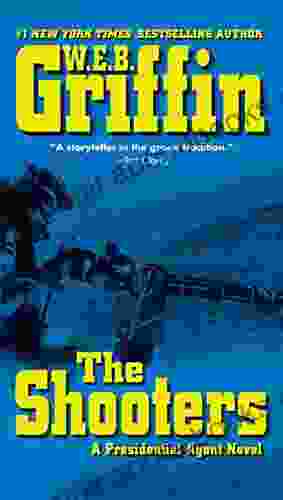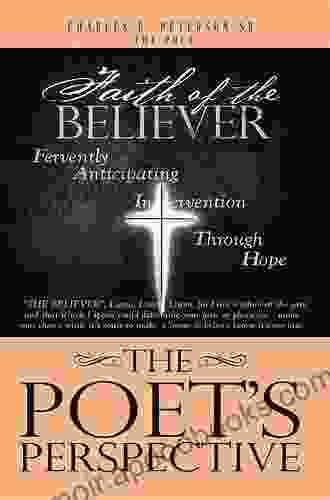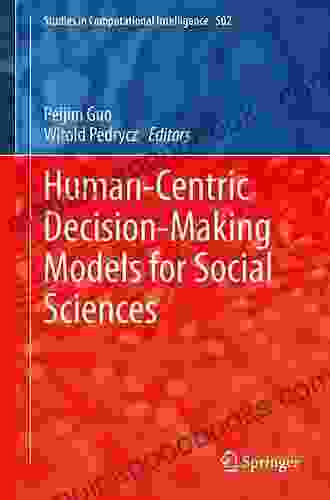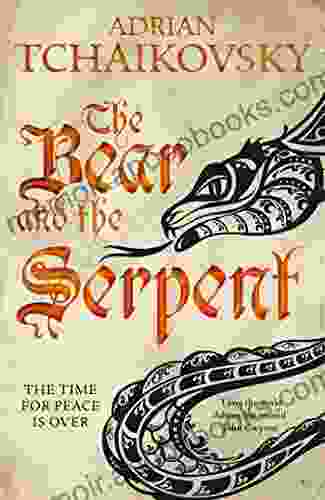Human Centric Decision Making Models for Social Sciences Studies

Decision-making is a fundamental aspect of human behavior and plays a crucial role in various social sciences disciplines, including psychology, sociology, economics, and political science. Understanding the cognitive processes and factors that influence human decision-making is essential for researchers seeking to accurately analyze and interpret social phenomena.
4.5 out of 5
| Language | : | English |
| File size | : | 17461 KB |
| Text-to-Speech | : | Enabled |
| Screen Reader | : | Supported |
| Enhanced typesetting | : | Enabled |
| Word Wise | : | Enabled |
| Print length | : | 418 pages |
| Paperback | : | 110 pages |
| Item Weight | : | 7.8 ounces |
| Dimensions | : | 6 x 0.28 x 9 inches |
This comprehensive guide provides an in-depth exploration of human-centric decision-making models, empowering researchers in social sciences to make informed choices for their studies. With extensive research and practical examples, this book equips readers with the knowledge and tools to design effective research methodologies and enhance the rigor of their findings.
Chapter 1: Theoretical Foundations of Human Centric Decision Making
This chapter introduces the theoretical underpinnings of human-centric decision-making models. It reviews key theories from cognitive science, behavioral economics, and psychology that provide a framework for understanding how individuals process information, form preferences, and make choices.
Topics covered include:
- Bounded rationality and satisficing
- Prospect theory and loss aversion
- Cognitive dissonance and self-justification
- Heuristics and biases
Chapter 2: Types of Human Centric Decision Making Models
This chapter explores the different types of human-centric decision-making models commonly used in social sciences research. It provides an overview of the strengths and limitations of each model, enabling researchers to select the most appropriate model for their specific research objectives.
Models discussed include:
- Rational actor model
- Prospect theory model
- Cognitive hierarchy model
- Behavioral decision theory model
Chapter 3: Designing Research Methodologies for Human Centric Decision Making
This chapter provides practical guidance on designing research methodologies that incorporate human-centric decision-making models. It covers various research methods, including surveys, experiments, and qualitative interviews, and discusses how to operationalize decision-making variables and measure outcomes effectively.
Topics addressed include:
- Sampling strategies for decision-making studies
- Constructing valid and reliable measures
- Data collection and analysis techniques
Chapter 4: Applications of Human Centric Decision Making Models in Social Sciences
This chapter showcases how human-centric decision-making models have been successfully applied in various social sciences disciplines. It presents case studies and empirical research that demonstrate the practical utility and impact of these models in understanding social behavior.
Applications discussed include:
- Consumer behavior and marketing
- Public policy and decision-making
- Interpersonal relationships and conflict resolution
- Health and well-being
Chapter 5: Future Directions and Ethical Considerations
This chapter concludes the book by discussing emerging trends and future directions in human-centric decision-making research. It also addresses ethical considerations related to the use of these models in social sciences studies, ensuring responsible and ethical research practices.
Topics covered include:
- The role of artificial intelligence and machine learning in decision-making models
- Cross-cultural perspectives on decision-making
- Ethical implications of using decision-making models in research
Human-centric decision-making models are powerful tools that can significantly enhance the rigor and effectiveness of social sciences research. This guide provides a comprehensive overview of these models, empowering researchers with the knowledge and skills to make informed choices and conduct insightful studies that contribute to a deeper understanding of human behavior and decision-making processes.
Whether you are a seasoned researcher or a graduate student embarking on your first research project, this book offers an essential resource that will guide you through the complexities of human-centric decision-making and help you produce high-quality research that makes a meaningful impact.
4.5 out of 5
| Language | : | English |
| File size | : | 17461 KB |
| Text-to-Speech | : | Enabled |
| Screen Reader | : | Supported |
| Enhanced typesetting | : | Enabled |
| Word Wise | : | Enabled |
| Print length | : | 418 pages |
| Paperback | : | 110 pages |
| Item Weight | : | 7.8 ounces |
| Dimensions | : | 6 x 0.28 x 9 inches |
Do you want to contribute by writing guest posts on this blog?
Please contact us and send us a resume of previous articles that you have written.
 Book
Book Novel
Novel Page
Page Chapter
Chapter Text
Text Story
Story Genre
Genre Reader
Reader Library
Library Paperback
Paperback E-book
E-book Magazine
Magazine Newspaper
Newspaper Paragraph
Paragraph Sentence
Sentence Bookmark
Bookmark Shelf
Shelf Glossary
Glossary Bibliography
Bibliography Foreword
Foreword Preface
Preface Synopsis
Synopsis Annotation
Annotation Footnote
Footnote Manuscript
Manuscript Scroll
Scroll Codex
Codex Tome
Tome Bestseller
Bestseller Classics
Classics Library card
Library card Narrative
Narrative Biography
Biography Autobiography
Autobiography Memoir
Memoir Reference
Reference Encyclopedia
Encyclopedia Tania Bayard
Tania Bayard Marc Becker
Marc Becker Mollie Makes
Mollie Makes Alessandro Barbero
Alessandro Barbero Aerosmith
Aerosmith Alison L Blumenfeld
Alison L Blumenfeld Steve Jam
Steve Jam Lawrence Bohme
Lawrence Bohme Timothy J Demy
Timothy J Demy Marc Kayser
Marc Kayser Karin Holmberg
Karin Holmberg Lynn M Sargeant
Lynn M Sargeant Jay Heins
Jay Heins Sean Madigan Hoen
Sean Madigan Hoen Chris Backe
Chris Backe John R Tyson
John R Tyson Sharon Zientara
Sharon Zientara Samantha A Cole
Samantha A Cole Beth Hildenbrand
Beth Hildenbrand Landon R Y Storrs
Landon R Y Storrs
Light bulbAdvertise smarter! Our strategic ad space ensures maximum exposure. Reserve your spot today!
 Fletcher MitchellFollow ·2.5k
Fletcher MitchellFollow ·2.5k Andres CarterFollow ·2.2k
Andres CarterFollow ·2.2k Tyler NelsonFollow ·19.7k
Tyler NelsonFollow ·19.7k Jesus MitchellFollow ·17.9k
Jesus MitchellFollow ·17.9k Carter HayesFollow ·12.3k
Carter HayesFollow ·12.3k Eliot FosterFollow ·10.1k
Eliot FosterFollow ·10.1k Emmett MitchellFollow ·3.9k
Emmett MitchellFollow ·3.9k Brenton CoxFollow ·13.6k
Brenton CoxFollow ·13.6k

 Jamie Bell
Jamie BellUnlock Your Mind with "Ever Wonder Why And Other...
Prepare to...

 Robert Frost
Robert Frost30 Day Betting Challenge: Transform Your Betting Habits...
Are you tired of...

 Derrick Hughes
Derrick HughesWhat Is Victory In War? Unraveling the Enigma of Triumph
The Illusion...

 Jesse Bell
Jesse BellThe Shooters: A Gripping Presidential Agent Novel That...
Enter the Shadowy World of...

 Ernest Hemingway
Ernest HemingwayUnlocking the Theological Depths of Paul Claudel: An...
Prepare to embark on an...
4.5 out of 5
| Language | : | English |
| File size | : | 17461 KB |
| Text-to-Speech | : | Enabled |
| Screen Reader | : | Supported |
| Enhanced typesetting | : | Enabled |
| Word Wise | : | Enabled |
| Print length | : | 418 pages |
| Paperback | : | 110 pages |
| Item Weight | : | 7.8 ounces |
| Dimensions | : | 6 x 0.28 x 9 inches |














